Devotional #1: You will be enriched in every way so that you can be generous on every occasion!

Scripture Reading: 2 Corinthians 9: 6-11
Remember this: Whoever sows sparingly will also reap sparingly, and whoever sows generously will also reap generously. Each of you should give what you have decided in your heart to give, not reluctantly or under compulsion, for God loves a cheerful giver. And God is able to bless you abundantly, so that in all things at all times, having all that you need, you will abound in every good work. As it is written:
“They have freely scattered their gifts to the poor;
their righteousness endures forever.”
Now he who supplies seed to the sower and bread for food will also supply and increase your store of seed and will enlarge the harvest of your righteousness. You will be enriched in every way so that you can be generous on every occasion, and through us your generosity will result in thanksgiving to God.
Reflection Thoughts:
I have always been so encouraged by this verse. Do you know those people in your life that are just uber-generous? Like, every time you eat lunch or drink coffee together, they never let you pay. Or if you need some help with your lawn, they’re the first ones to show up with rake in hand. And always, always, jovial, with a smile on their faces? Like they just are the happiest when they can help out, when they get the chance to give away? I want to be like those people. I’m so far away from it, but they inspire me, spur me onwards. When I read these verses, it makes me think of these people. It also reminds me – that generosity multiplies, that generosity brings out happiness, and that generosity returns to you.
1. Whoever sows generously will also reap generously
First, generosity multiplies. The Bible loves to use lots of agricultural parables, and this one is no exception. Think of generosity like a seed. I’m fascinated by seeds and plant growth – stick one little seed in the ground, and out comes either a flower, or a tree, or a veggie plant that just seems to keep growing and growing and growing. I remember growing 4 tomato plants a few summers ago. I think I must have harvested about 20 tomatoes a week for a month! I couldn’t keep up with my tomato plants! That’s what this verse is all about – sow generously – plant lots of seeds. Give to lots of people, to your friends, to strangers, to your coworkers – whoever! And to whomever you give, give lots to them! Give them time, give them money, give them presents on their birthdays, write them cards of encouragement, smile and laugh with them lots – give them the best of yourself. Plant those seeds. You can’t control what happens once you plant those seeds, but with time, sunshine, and rain (good times and bad) – those seeds will break open, and little green shoots will start to appear in the lives of those you’ve loved. And those seeds will just spill over and the harvest will be plentiful! That generosity will multiply beyond your wildest dreams in the lives, hearts, and “soil” of the people you’ve blessed!
2. Give what you have decided in your heart to give, for God loves a cheerful giver
Second, generosity brings out happiness. Sometimes, we get so worried that if we give some money here, or volunteer time there, that I won’t have time or money for something else, or someone else. Well, yes, you’re right – by saying “yes” to one thing, then by definition in that very moment you are saying “no” to everything else. And that’s what this verse is encouraging you to embrace – it’s okay! Don’t be scared to say “yes” – don’t be scared of “missing out” of something else. God placed you in that moment in time, he presented you with that opportunity, he asked you to give in that very situation, and if it’s something that you feel called to – then enthusiastically say “yes”, and don’t look back! Be happy. Enjoy the moment. Enjoy the lighter pockets, the freedom of volunteering your time, the joy of being with people that need your love in that moment! Be a cheerful giver – and that giving will actually bring you even more cheer 🙂
3. You will be enriched in every way so that you can be generous on every occasion
Third, generosity returns to you. Don’t be scared that once you “use” your time or money by giving it away that it will then be “gone”. No. Money comes and goes. Gave it away? You’ll have more some day. Time keeps coming. If you give away a minute, then another minute will follow right after that – and once again you can choose to give it away or spend it on something else. Not only that, but God promises that the more generous you are, the more you’ll be given so that you can keep on giving!! What?! That’s a crazy promise. He doesn’t promise that generosity will make you rich – nope – he just promises that if he can trust you as a generous steward of his gifts, he’ll just give you more gifts to steward for others!! Wow, don’t you just want to be used by Him like that? I sure do!
Application:
As you reflect on these three points from the scripture, would you ask yourself a couple questions?
- Remember my tomato plant – 4 little seeds resulted in masses of tomatoes that summer. What tomato seeds can you “plant” in the lives of others?
- Are you an enthusiastic person, or do you tend to be a little melancholy? See the glass half-empty, or half-full? God asks you to be a cheerful giver, to decide to give, and then just to follow it through without a second thought or a worry. When a thought just crosses your mind to give, do you have the courage to follow through? Why don’t you put a smile on your face and just go with the flow!!
Devotional #2: A good measure, running over, will be poured into your lap!

Scripture Reading: Luke 6:38
Give, and it will be given to you. A good measure, pressed down, shaken together and running over, will be poured into your lap. For with the measure you use, it will be measured to you.”
Reflection Thoughts:
I woke up this morning to my alarm clock dinging on my mobile cell phone. Squinting my eyes open, I checked out the phone screen and saw a “Verse of the Day” had been delivered to my phone – and this was it – Luke 6:38. I opened up Luke 6 to figure out what the context was – just before this verse, Luke is saying “Do not judge, and you will not be judged. Do not condemn, and you will not be condemned. Forgive, and you will be forgiven.” And then he writes “Give, and it will be given to you.”
There are so many ways in life to be generous, aren’t there? Be merciful and don’t judge too harshly – that’s generosity of your spirit! Do not condemn – that’s generosity of your love! Forgive – that’s generosity of your heart! It’s so easy to go through your life, to go through your day, and to think the worst of others in a difficult situation. It’s easy to look down on others for mistakes made, for sins committed. But you know what this reminds me of? That I am a pretty difficult person sometimes. That I screw up. That I make insensitive comments. That I do things I would definitely not approve of someone else doing. That I forget important occasions, that I am thoughtless, that I am selfish. And despite this, the verse is encouraging me – saying – okay, I know you suck sometimes. So go easy on others around you – don’t judge them, forgive them. Because you know what? If that’s what you do, then that’s what will be done to you!
What a blessing! I mean, all I’ve got to do is be merciful, and mercy will be shown to me?! That’s just exactly what God the Father and Jesus the Son have done for me on the cross – I’ve already been shown mercy. But that promise isn’t over – no, it’s still a promise for my everyday life. My mercy will also result in more mercy to me. What an amazing promise!
Application:
When I think of the last part of this verse – that the measure I use, if it is a good, or generous measure, will be given back to me. I want to think of this like an ice cream cone. Ice cream is pretty much at the top of my list of “Best foods ever”. So when I go to get an ice cream cone, I really have to use self restraint not to order the extra-large, triple-scoop size every time. You know what makes me really happy? When the guy or gal behind the counter just uses a reeeeaally big scoop on my single-scoop cone. It sends me over the moon. That’s what I want you to think of as you understand this verse – the measure you use for scooping out ice cream into the lives of others around you – use a big scoop – then press that ice cream down into the cone, and top it off so that the cone is overflowing with that goodness! If you can do that – today, this week – then that’s the measure that will be used when others, when Christ, is doling out ice cream into the cone of your life!
Devotional #3: If your spiritual gift is “giving”, then give generously!

Scripture Reading: Romans 12:6-8
We have different gifts, according to the grace given to each of us. If your gift is prophesying, then prophesy in accordance with your faith; if it is serving, then serve; if it is teaching, then teach; if it is to encourage, then give encouragement; if it is giving, then give generously; if it is to lead, do it diligently; if it is to show mercy, do it cheerfully.
Reflection Thoughts:
Sometimes I feel guilty when I see other people around me that just seem to give so generously and so easily. My grandfather was one of those people – he just loved, loved, loved people. And would easily give the shirt off his back if asked – or maybe even if not asked. I so desperately want to be one of those people, even though I know I’ve got a long way to go. Romans 12:6-8 helps give me some perspective, though. “Giving” is a gift from the Holy Spirit. Wow!! It’s a spiritual gift – like prophecy, like teaching, like leading – giving is right up there!!
As Christians, we so easily exalt some gifts over others – the spiritual gift of preaching in Church – we lift it up on a pedestal, don’t we? But this verse reminds us – no! God hasn’t just made a few exalted spiritual gifts. He’s given each of us a gift. His church is made up of all kinds of different members with all kinds of different gifts. And we’re all crucial, critical, and important to His ministry, His work, and His purpose here on earth. To compare the “toe” to the “eye” isn’t fair, nor is it necessary. What this verse is saying is that – if you’re a toe – be the very best toe you can be. You don’t need to strive to be like an eye – that isn’t your purpose, isn’t your gifting, and that’s okay!! But it is your responsibility to be a really great toe.
Being the person with a gift of giving, it seems so attainable doesn’t it? Why not ask for the gift of giving? How amazing would that be, to be a giver? And yet, don’t down-play the gift of giving just because it seems so humanly attainable. This kind of giving has got to be spirit-led. It’s not just any type of giving, it’s generous, inspired, selfless, continuous giving. It’s jovial, cheerful, loving. It’s a beautiful gift that breathes life into every person it touches.
Application:
What is your spiritual gift? God promises to give good gifts to his children, and He bestows spiritual gifts on the members of his church. Has He blessed you with the gift of giving? Or would you love to be one of His faithful givers? Why not pray and ask for this gift? Take on the responsibility of giving in your church. Watch out for those that are struggling to make ends meet, watch out for those single parents who could use a homemade, pre-made meal delivered to them, watch out for those kids that need a mentor, watch out for the leader who needs a gift of thanks in a sometimes lonely job. Be the giver, the cheerful, generous giver, in your church community. Ask the Holy Spirit to open your eyes to the gaps around you, gaps that can be filled by you and your giving. Those people are just my favourite, aren’t they yours?!
Devotional #4: Your Father, who sees what is done in secret, will reward you!

Scripture Reading: Matthew 6:1-4
“Be careful not to practice your righteousness in front of others to be seen by them. If you do, you will have no reward from your Father in heaven.
“So when you give to the needy, do not announce it with trumpets, as the hypocrites do in the synagogues and on the streets, to be honored by others. Truly I tell you, they have received their reward in full. But when you give to the needy, do not let your left hand know what your right hand is doing, so that your giving may be in secret. Then your Father, who sees what is done in secret, will reward you.
Reflection Thoughts:
The word “secret” is so alluring, isn’t it? If someone “has a secret” – your mind just zones in on it, trying to pry it from them, trying to figure it out. If you look at articles online, at marketing schemes – you’ll see a lot of people using the word “secret” to suck you in – it’s a magical word that makes us all pay attention.
However, when a marketer tells you they have a secret, they surely intend to tell you what it is once you just click on their headline or their call-to-action button. Not really much of a secret, let’s be honest.
What God is calling us to in these verses, to be secretly generous towards the needy, is real, honest-to-goodness, heavenly secrecy. He says not even to let your left hand know what your right hand is doing!
Oh, I am so bad at this. What about you? As soon as I do something nice, I get super excited about it. I fool myself, saying, well, if I tell other people that I did this nice thing, then they’ll be inspired to do it too, and then the niceness will multiply!! But that’s my human heart, yearning, striving, for some good ol’-fashioned human recognition. I know that. God already promises that the more generous you are, the more you will be given so that you can continue to be generous (2 Cor. 9:11). So you don’t need to worry about inspiring others with stories of your generosity. This verse tempers that desire, and lets us know – if you tell others – well, good – you’ve received your reward. You got warm fuzzies and a little bit of praise from your friends. Excellent. Debt repaid.
However, if you can keep it a secret, just you and Christ – your own heavenly secret – then oh, the reward that will be for you from the Almighty Creator! It will surpass any human praise that you could possibly get!
Application:
Take a look at the “false secrecy” of the world around you – the marketers promising to let you in on secrets if you click their website, the allure of a friend “letting you in on a secret” as a pretense for just sharing a bit of gossip – can I encourage you today to not let yourself be sucked in to this earthly secrecy?
Can I encourage you instead to know the true beauty of heavenly secrecy? Find a person so much in need that they can never repay you. Give to them so generously, and so anonymously, that you find absolutely no reward from any person. Let the Holy Spirit fill you. Smile, and keep your mouth shut. Let heavenly secrecy be your aim. Yes, sometimes you’ll fail. But God has got such good things in store for you, and he’ll give you more and more resources to generously give away the more you steward his gifts wisely. Be blessed!
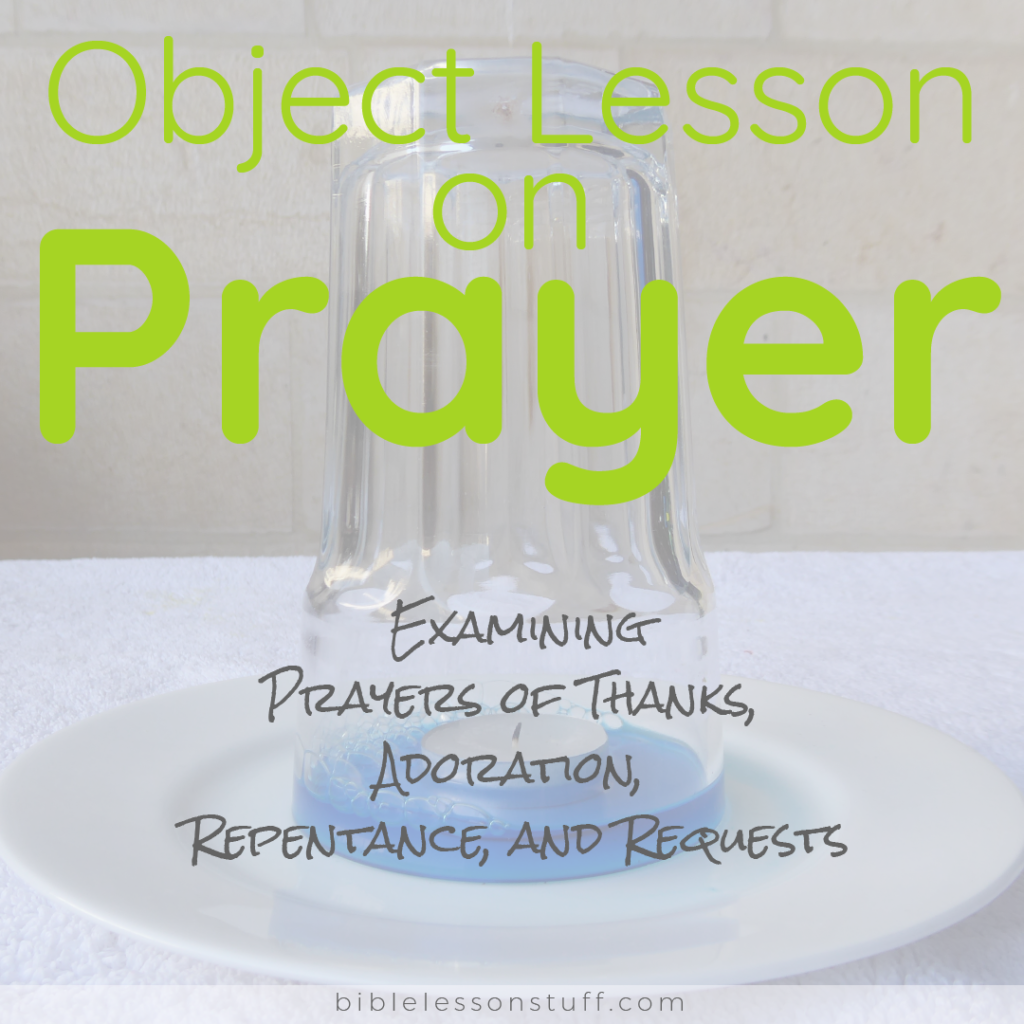
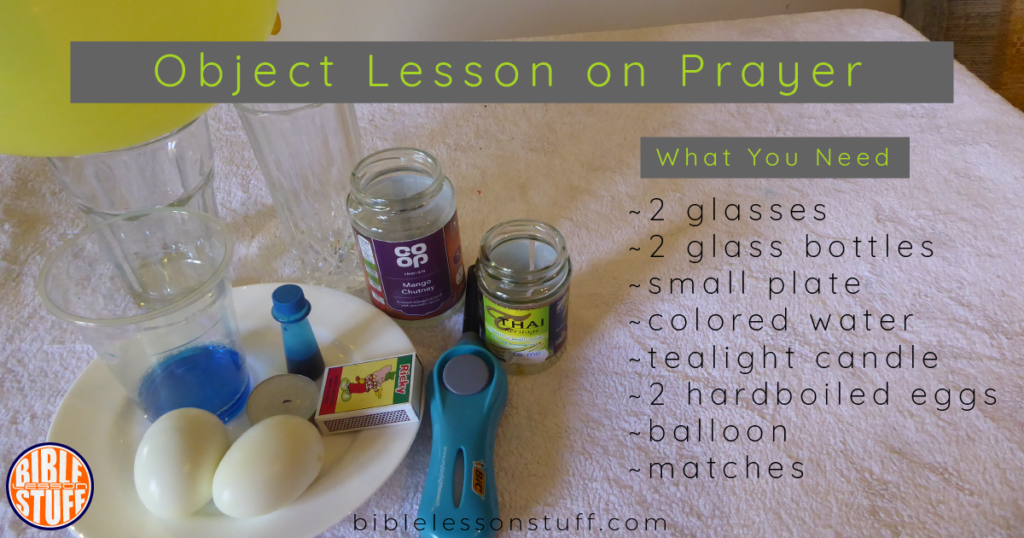


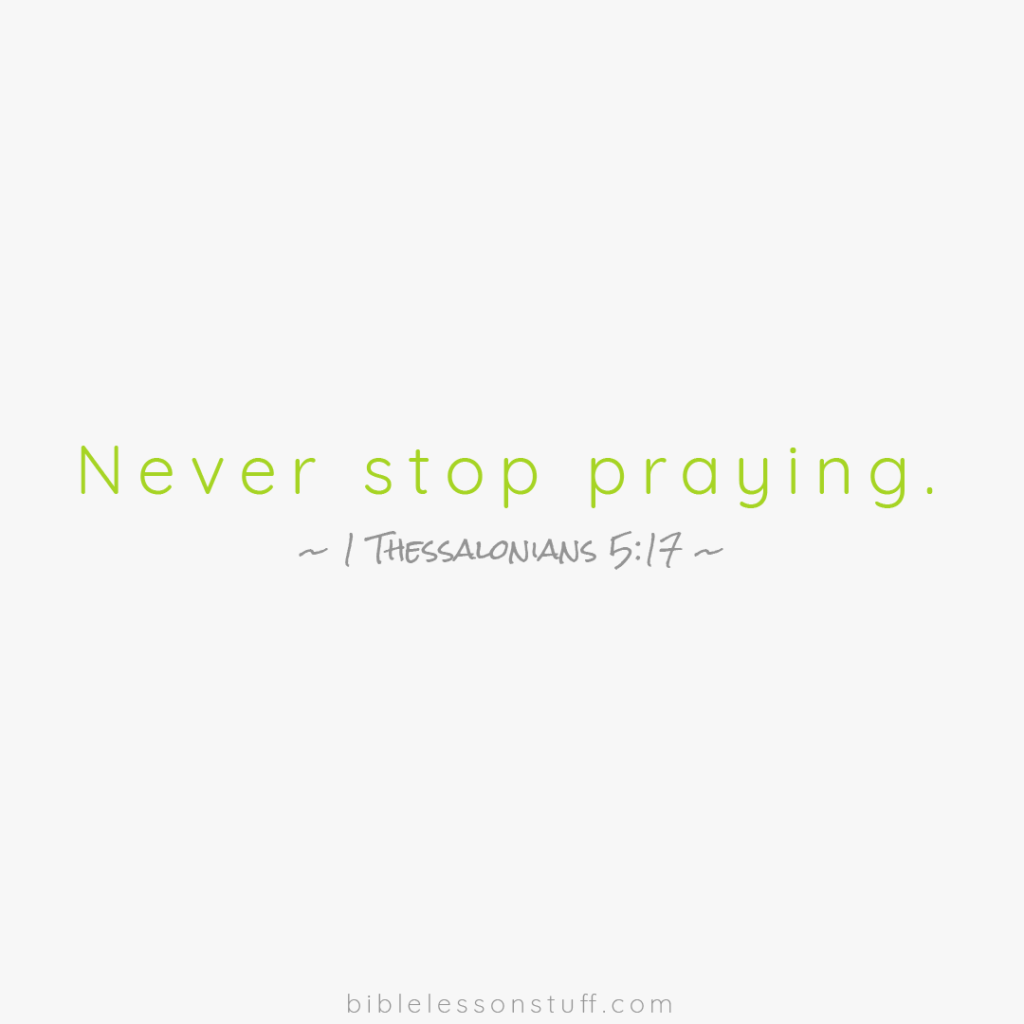
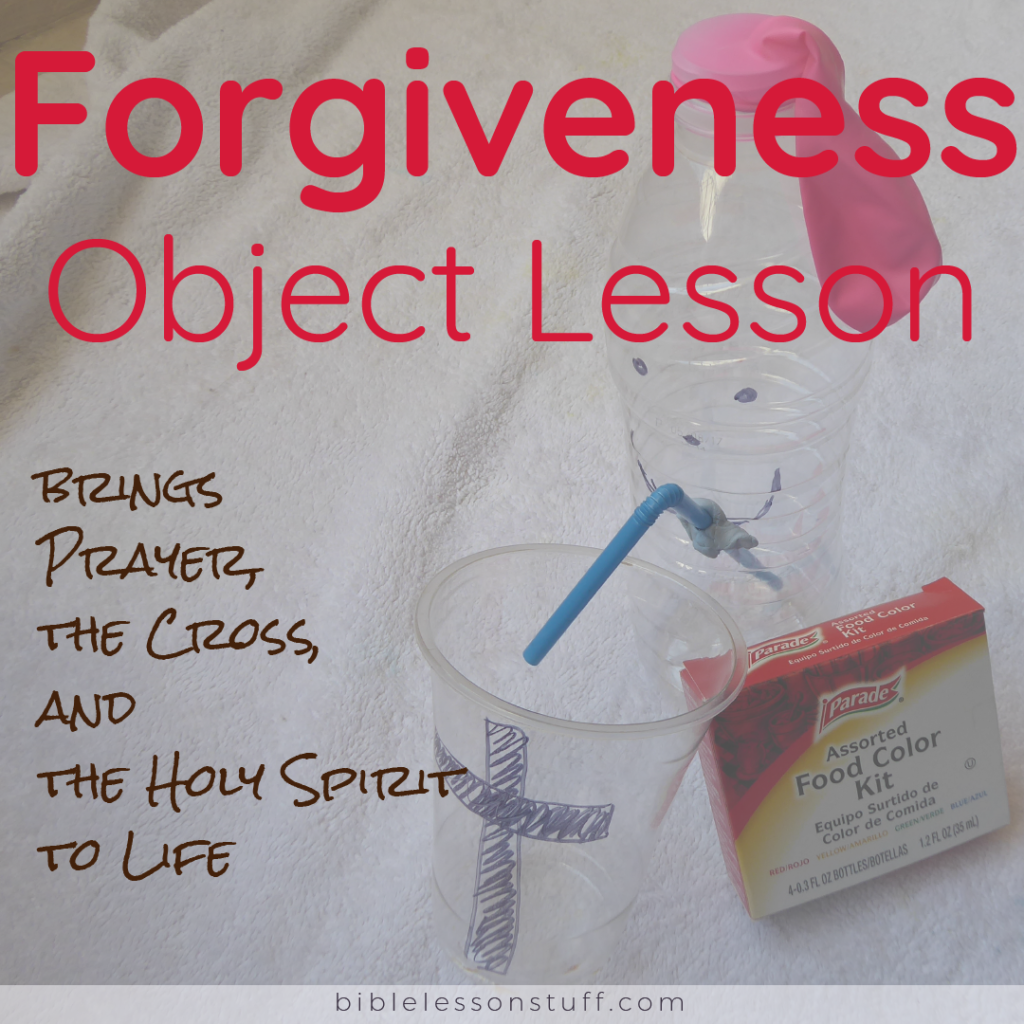
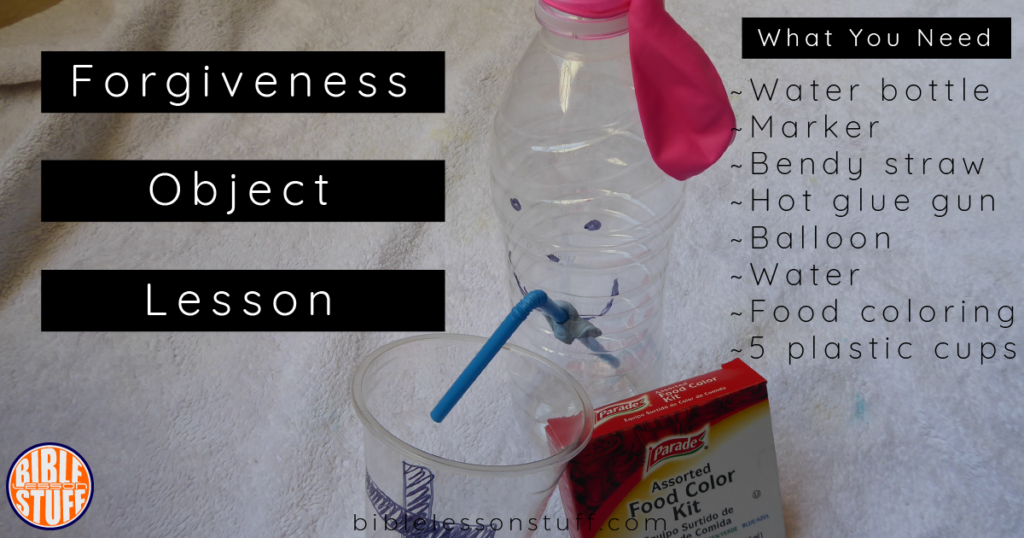
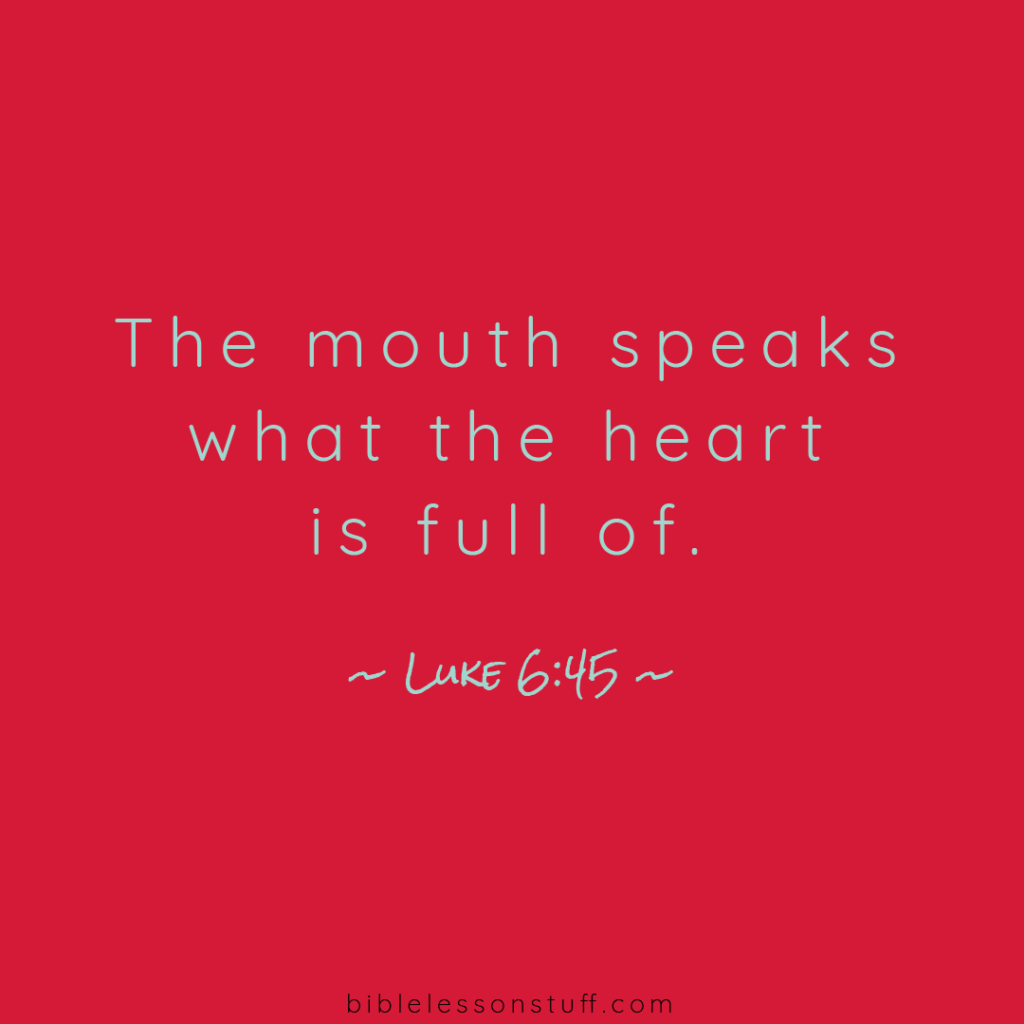
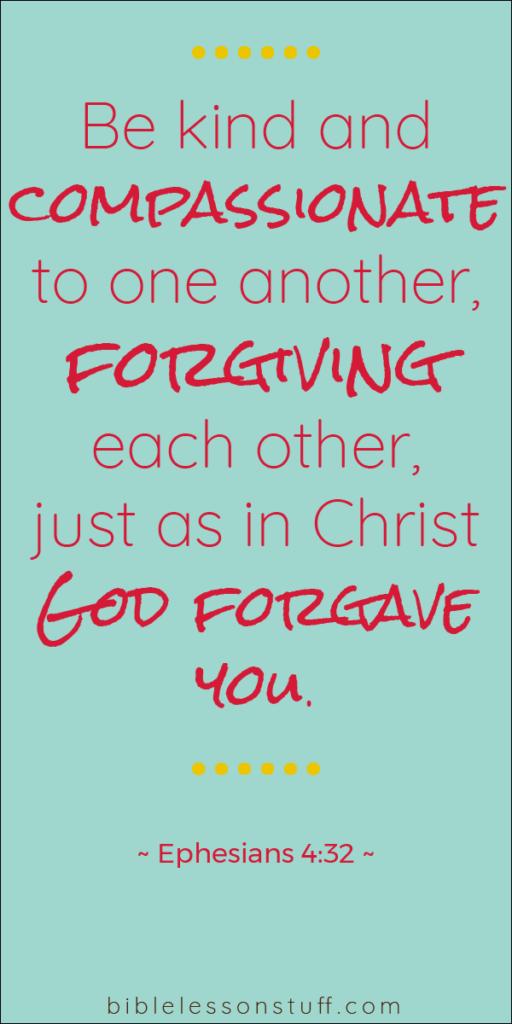
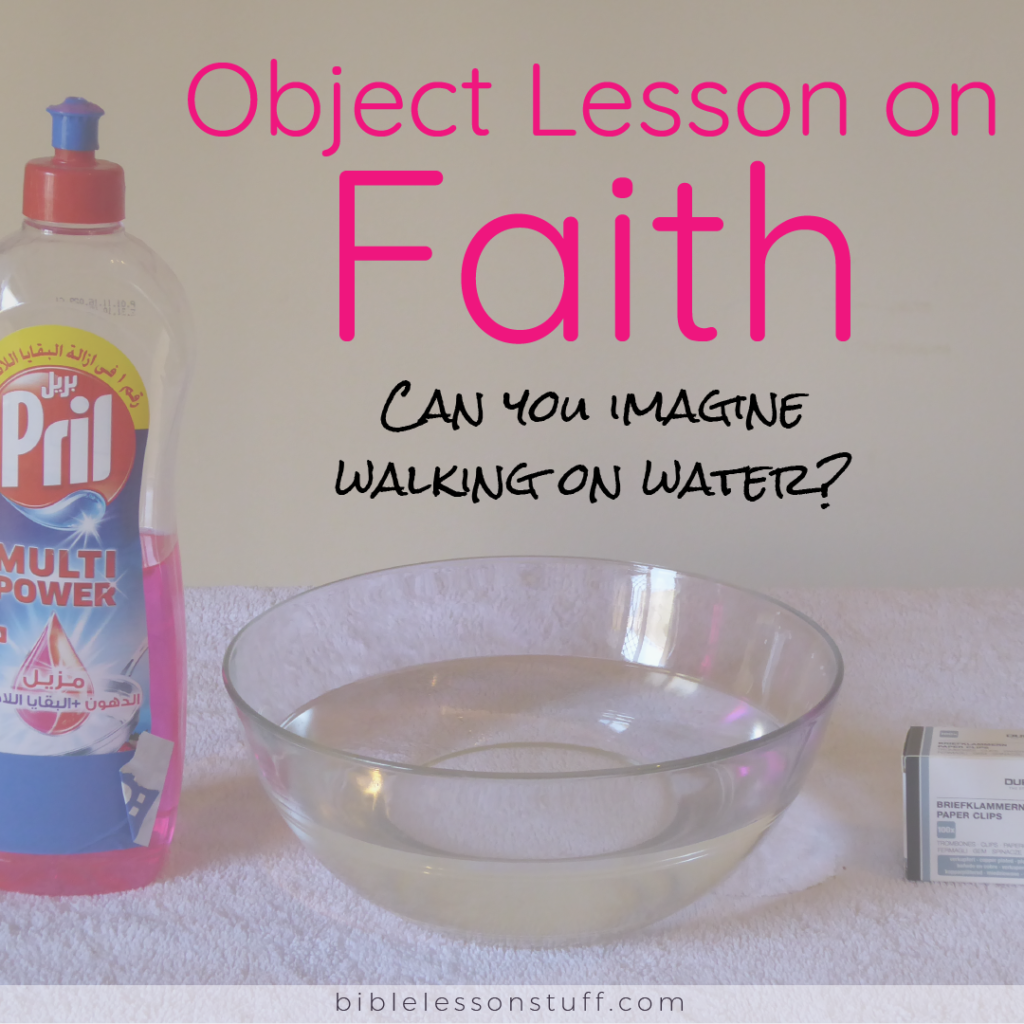
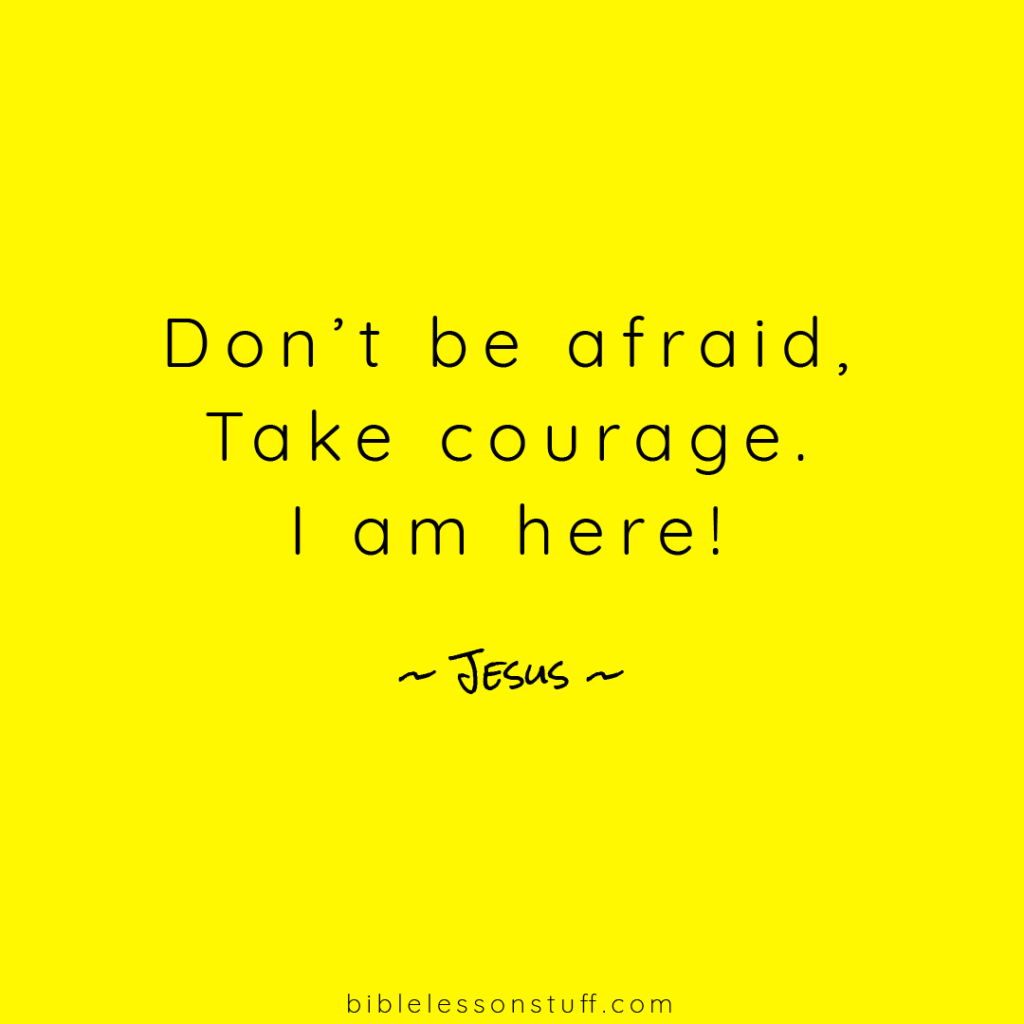
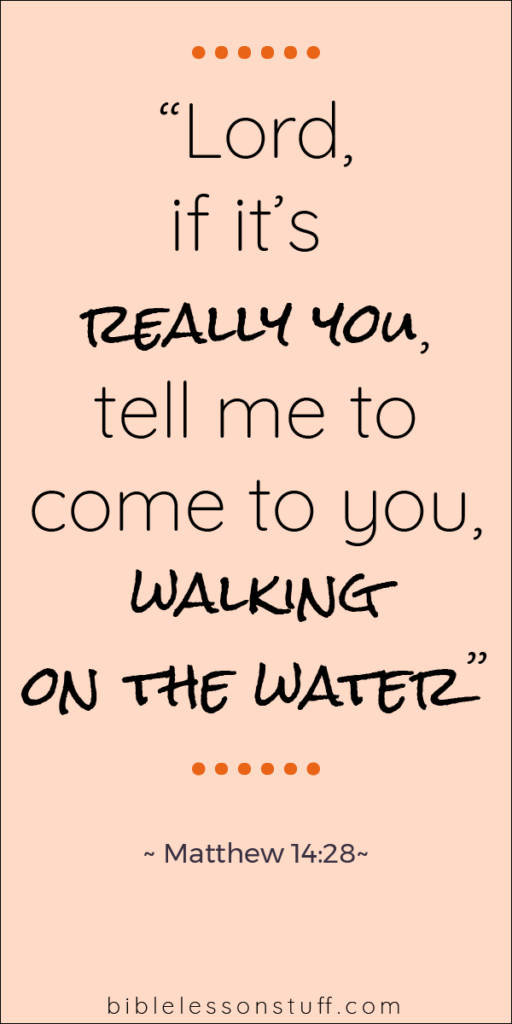
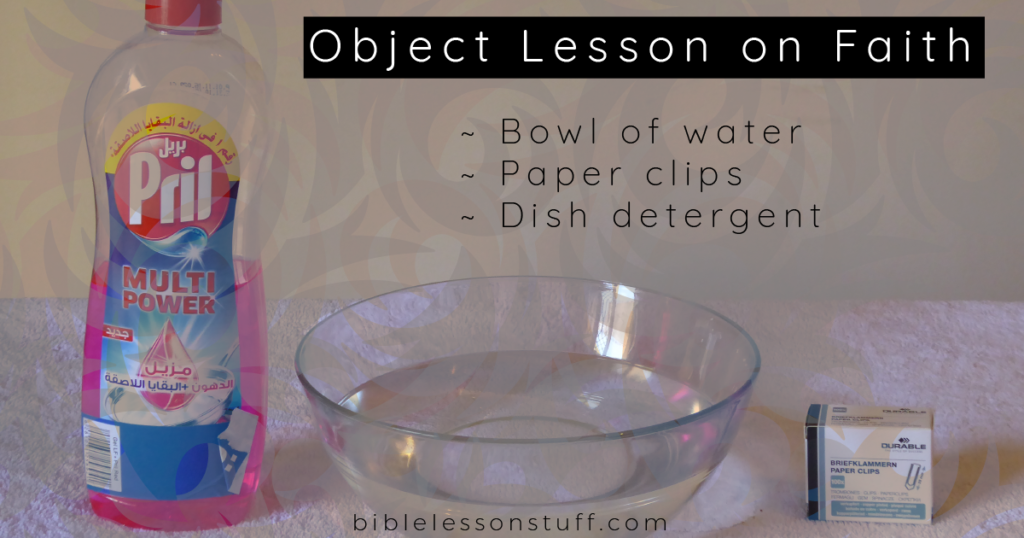
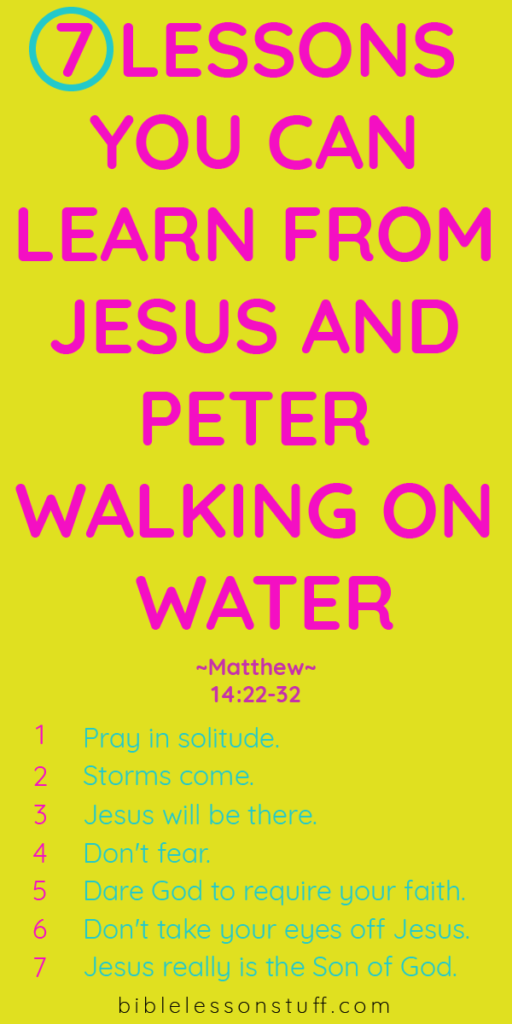
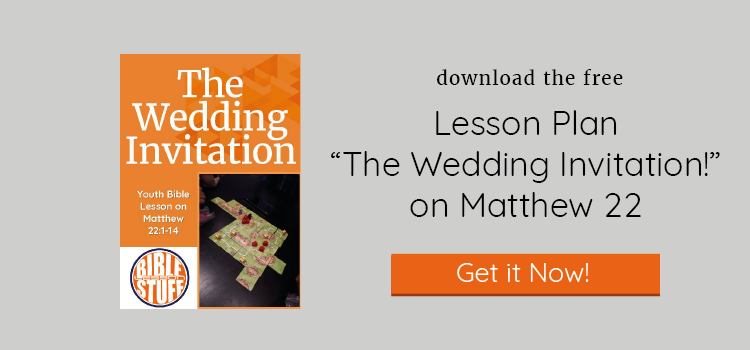
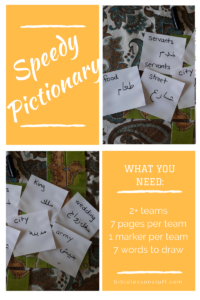
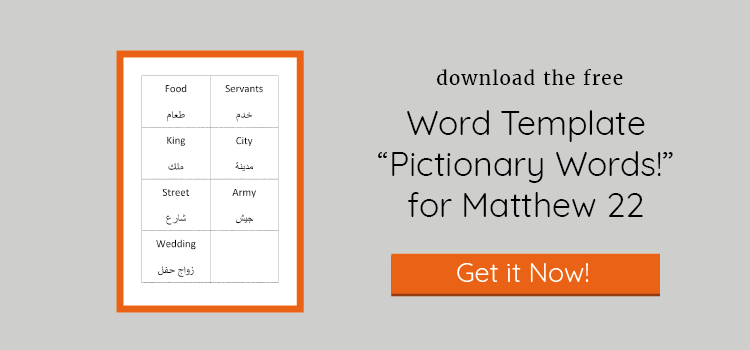
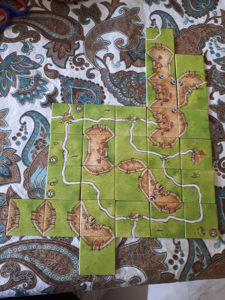
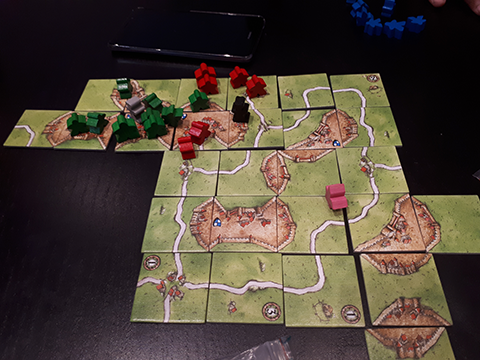
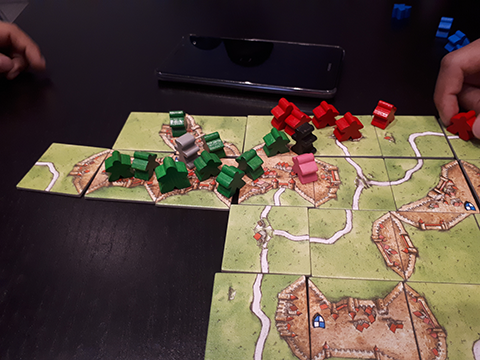
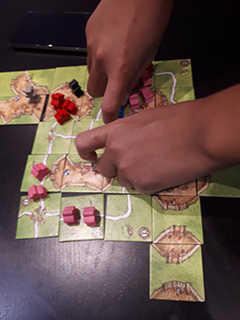
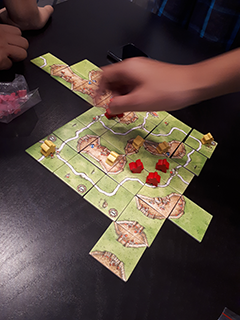
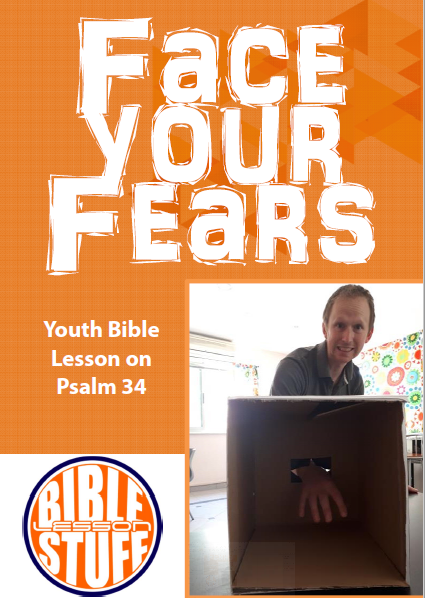
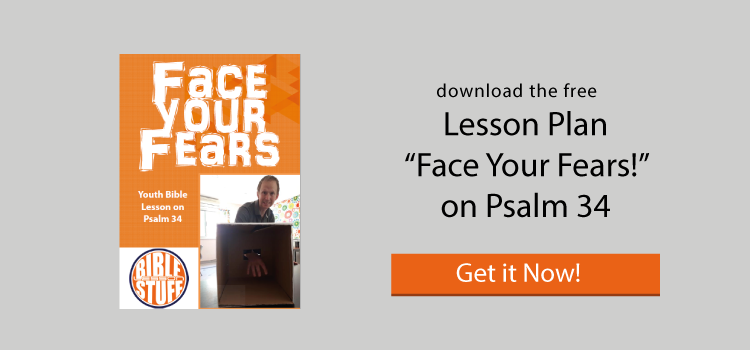
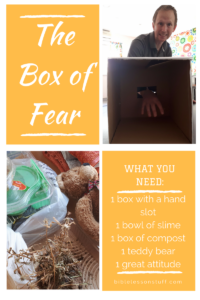 Preparation:
Preparation:

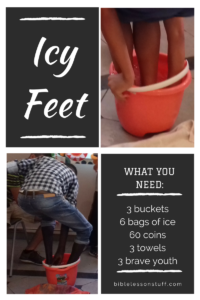




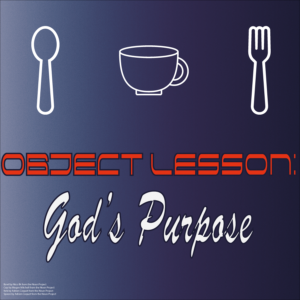 Object Lesson Summary: Put two bowls on the table, one with water and one without. Choose one person, and show him or her three utensils: a cup, a spoon, and a fork. Tell them that the goal is to move the water from one bowl to the other. They can choose whichever utensil they want to use. They most likely will first choose the cup. But then say, “Oh, actually, I need to use the cup for something else, I forgot.” And put it to the side. Then they’ll probably choose the spoon, but say, “Sorry, I just remembered I actually need the spoon for another thing.” So they end up with the fork. It is a little amusing to see them basically try to move water with a fork – a few drops of water make it from one bowl to another each try. After a few tries, stop their valiant efforts and move on to the “point”.
Object Lesson Summary: Put two bowls on the table, one with water and one without. Choose one person, and show him or her three utensils: a cup, a spoon, and a fork. Tell them that the goal is to move the water from one bowl to the other. They can choose whichever utensil they want to use. They most likely will first choose the cup. But then say, “Oh, actually, I need to use the cup for something else, I forgot.” And put it to the side. Then they’ll probably choose the spoon, but say, “Sorry, I just remembered I actually need the spoon for another thing.” So they end up with the fork. It is a little amusing to see them basically try to move water with a fork – a few drops of water make it from one bowl to another each try. After a few tries, stop their valiant efforts and move on to the “point”.

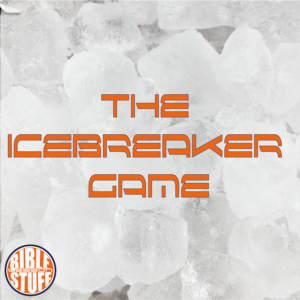 We love starting off with a pretty active game or activity that loosens the youth up, gets them working together (or competitively), and breaks the ice a little bit before we dig into deeper conversations. But this week, we took it to the literal extreme of breaking ice!!
We love starting off with a pretty active game or activity that loosens the youth up, gets them working together (or competitively), and breaks the ice a little bit before we dig into deeper conversations. But this week, we took it to the literal extreme of breaking ice!!